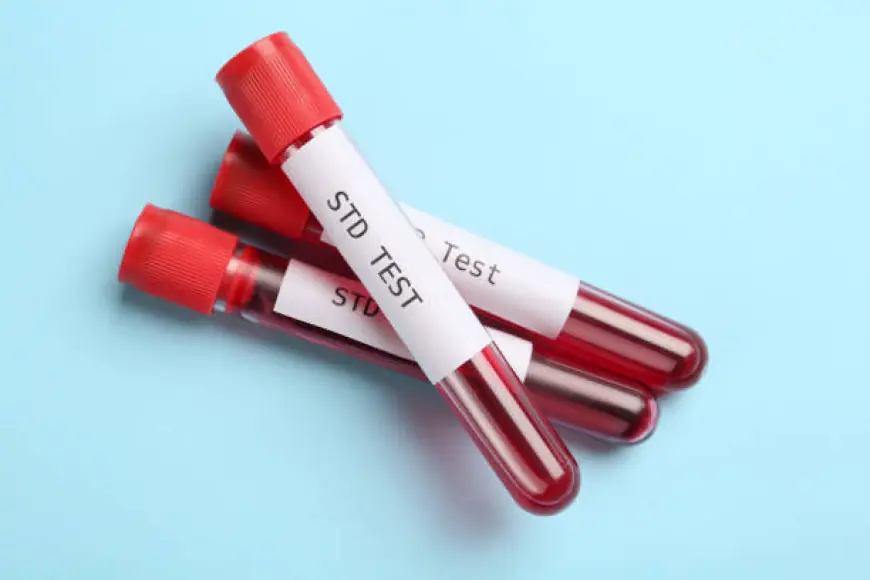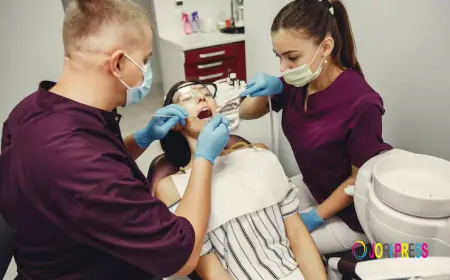STD Test in Dubai: Technology Updates You Can Expect in 2025 and Beyond
Sexual health continues to evolve with rapid technological advancements, and STD Test in Dubai is at the forefront of adopting innovative solutions. From point-of-care diagnostics to CRISPR-based detection and AI integration, the coming years promise faster, more accurate, and more patient-centered approaches. Understanding these upcoming technology updates is essential for residents who want to stay informed and proactive about their sexual health.
The Shift Toward Advanced Diagnostics
Traditional STD testing often required multiple clinic visits, long waiting times, and sequential testing for different infections. Modern technology is changing this landscape by providing rapid, accurate, and integrated diagnostic solutions.
Key Trends in STD Testing Technology:
-
Rapid Point-of-Care (POC) Tests – Tests that provide results in minutes, allowing immediate consultation and treatment.
-
Multiplex Assays – Detect multiple infections from a single sample, saving time and improving efficiency.
-
CRISPR-Based Diagnostics – Ultra-sensitive tests capable of detecting infections at very early stages.
-
At-Home Kits – User-friendly kits that enable discreet testing with digital result delivery.
-
AI Integration – Enhances result interpretation, personalized treatment guidance, and predictive analytics.
These innovations are reshaping how STD testing is performed, making it more convenient and effective for patients in Dubai.
CRISPR and Molecular Innovations
CRISPR-based testing is one of the most exciting developments in sexual health diagnostics. Unlike traditional tests, CRISPR technology can identify pathogen DNA or RNA with unprecedented precision.
Advantages of CRISPR-Based STD Testing:
-
High Sensitivity and Specificity – Detects infections even in early stages.
-
Rapid Results – Can provide results in less than an hour.
-
Potential for At-Home Use – Small, portable kits may allow home testing in the near future.
-
Multiplex Capability – Possibility to detect multiple infections from a single sample.
Dubai’s clinics and diagnostic centers are preparing to adopt CRISPR-based solutions as they become commercially available, ensuring faster and more reliable STD detection.
AI and Digital Health Integration
Artificial Intelligence (AI) is transforming STD testing by:
-
Enhancing Diagnostic Accuracy – AI algorithms can analyze complex test results more accurately than manual interpretation.
-
Predicting Risk Factors – Personalized risk assessments guide patients on preventive measures.
-
Telemedicine Support – AI can assist healthcare providers in delivering tailored consultation and treatment recommendations.
-
Streamlining Laboratory Processes – AI automates workflows, reducing errors and increasing efficiency.
By combining AI with digital platforms, patients in Dubai can access timely results, confidential consultations, and guidance for follow-up care.
At-Home Testing and Patient Empowerment
The trend toward at-home STD testing is expected to grow significantly in 2025 and beyond. Future kits will likely incorporate:
-
Rapid Multiplex Testing – Detect multiple infections simultaneously at home.
-
CRISPR Technology – Ultra-sensitive detection in a portable, user-friendly format.
-
Digital Result Delivery – Secure apps and platforms for confidential result access.
-
Integrated Telemedicine Services – Immediate consultation with healthcare providers following a positive test.
This approach empowers patients to manage their sexual health privately, efficiently, and proactively.
Impact on Public Health
The adoption of new STD testing technologies in Dubai will have a substantial public health impact:
-
Increased Testing Rates – Convenience and privacy encourage more people to get tested.
-
Early Detection and Treatment – Reduces transmission and prevents complications.
-
Better Data for Policy Making – Aggregated anonymized results inform public health strategies.
-
Efficient Resource Allocation – Rapid and multiplex testing reduces laboratory workload.
Technology-driven STD testing enhances both individual health outcomes and community well-being.
Challenges and Considerations
While the future of STD testing in Dubai is promising, some challenges must be addressed:
-
Regulatory Approval – All new technologies must meet Dubai Health Authority standards.
-
Cost – Advanced tests may be more expensive initially, though cost-effectiveness improves with scale.
-
Patient Awareness – Public education is essential to promote adoption and correct usage.
-
Data Privacy – Digital integration requires secure handling of sensitive health information.
Dubai’s healthcare infrastructure is well-positioned to address these challenges, ensuring safe and effective implementation of new technologies.
Looking Ahead
By 2025 and beyond, STD testing in Dubai is expected to be:
-
Faster – Results available within minutes through point-of-care and at-home testing.
-
More Accurate – AI-enhanced analysis and CRISPR-based detection improve reliability.
-
Comprehensive – Multiplex assays allow simultaneous detection of multiple infections.
-
Patient-Centered – Discreet, convenient, and integrated with digital platforms for telemedicine support.
-
Public Health-Oriented – Data-driven insights help control transmission and support community health initiatives.
These advancements promise a future where STD testing is seamless, efficient, and empowering for residents and expatriates in Dubai.
Final Thoughts
The landscape of STD Test in Dubai is rapidly evolving, driven by cutting-edge technologies such as CRISPR, AI, multiplex assays, and at-home testing kits. These innovations are making sexual healthcare faster, more accurate, and more accessible, while also addressing privacy concerns and reducing stigma.
As Dubai embraces these technological updates, individuals can expect a new era of proactive sexual health management, where early detection, rapid results, and comprehensive care are the standard. By integrating innovation with patient-centered care, the city is setting a benchmark for STD testing in the region and ensuring healthier, safer communities for all.
What's Your Reaction?
 Like
0
Like
0
 Dislike
0
Dislike
0
 Love
0
Love
0
 Funny
0
Funny
0
 Angry
0
Angry
0
 Sad
0
Sad
0
 Wow
0
Wow
0






















































